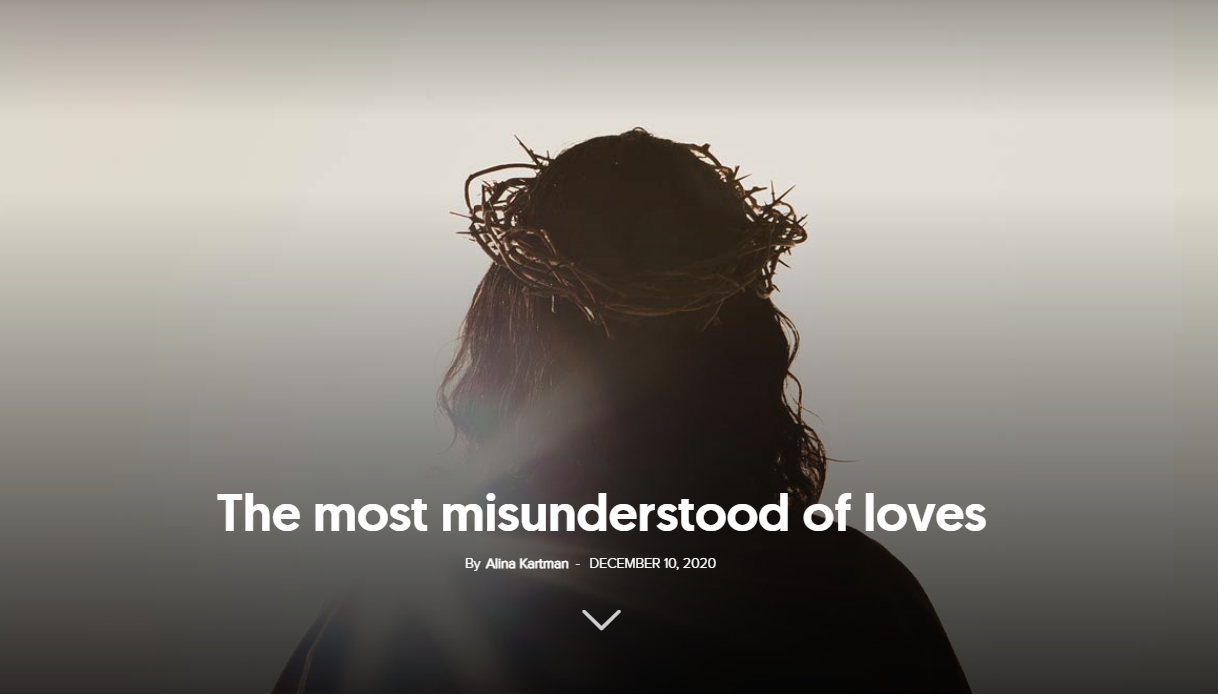Love stories have the ability to captivate us with the details of an undying beauty, to overshadow the uncertainties about their permanence, to introduce through the front door the hope that one day we will live such a story, which will bear the signature of eternity.
The fact that other love stories are always born around us, brand new, without signs of wear and tear, is an impetus given to the old loves to break free from the prison in which time still confines them.
People change, society bends or breaks its rules, but the hunger for love always remains constant.
On May 4th, 2000, the Love Bug virus, launched by a Filipino hacker, swept several continents within hours, attacking tens of millions of computers, causing billions of dollars in damage. Major institutions, such as the CIA, the United States House of Representatives, the United States Congress, or the House of Commons in the British Parliament, did not escape the attack either.
The virus spread like wildfire due to its ability to proliferate by email, to every Outlook address. The hook with which the virus lured users was an e-mail with the subject “I love you”, which contained an attached file called “Love letter for you”. If we believe that only self-conscious teenagers would have opened the letter, we are far from the truth. One of those who clicked on the malicious file was Congressman Fred Grandy, president of Goodwill Industries.
Rosalind Porter, co-editor of “Four Letter Word: Original Love Letters”,[1] admits that she was also caught in the “Love Virus” trap. Beyond negligence or curiosity, people opened the virtual letter because they hoped it was for them, that there was someone who was thinking of them. And, even if everyday reality suggests that there is no mysterious lover who does not dare to show their face, when a message of love is just a click away, it is easy to take a look at it, just in case.
Love stories that defy time
An atypical love story was published by Reader’s Digest in September 1985, under the signature of Arnold Fine.[2] He had found a wallet on the street that had three dollars in it, and a love letter, written six decades previously. Delving into this world made out of paper, ink and love, the publisher witnesses a connection that breaks silently: (the then young) Hannah was letting her dear Michael know that their relationship was ending, because it did not have the family’s blessing.
Following the address written on the envelope, Arnold Fine tries to track down Hannah, and, after a series of searches, he finds her in a care home. Hannah confirms that she is the author of the letter, telling him details of her unfulfilled love: she was 16 when her mother forbade her to ever see Michael again, so she had to write to him that their relationship was over. Her letter ends with a promise, which an adult would consider naivety: “I will always love you.” Yet, at the age of 76, Hannah still kept the memory of her lost love and had not said “yes” to any other suitors.
A curious doorman at the care home, who, unsuspectingly, holds a key detail in this story, and who wanted to know who Fine visited, also learns the story of this untouched love, which had lasted for so many years. The editor’s investigation takes a happy turn when the doorman informs him that Michael Goldstein lives in the same home, only five stories apart from the girl he had courted in his youth. Arnold Fine goes to visit him and return his lost wallet, and has an even bigger surprise: the recipient of the letter had never married either, because his life had frozen at the time of his separation from Hannah.
But it was time to unfreeze, so in the middle of the seventh decade of their lives, Hannah and Michael let their love create a common path, uniting their lives in marriage three weeks later.
In our century, love stories no longer seem to be built of the same durable material; you can’t go around the world in eighty days anymore, and vows are falling apart faster than Mr Fogg can dismiss his valet, sometimes for just as ridiculous reasons.
We no longer judge relationships by the same criteria, the absence of parental consent is no longer worth much in a society where the heart seems to have the first and last word, and also, the right to an unpredictable series of disappointments. But the happy ending of relationships like the one Hannah and Michael had makes us long for the days when love evolved from the fireworks of declarations and emotions into commitments that lasted a lifetime, and when the chosen one did not become, with hopeless ease, replaceable.
A love story shaped by an unearthly script
However, history has recorded an even more impressive love story than the one published in Reader’s Digest (or than many others, famous or anonymous, moving through the details of their loyalty, sacrifice, or longevity). It is the story too little mentioned, superficially understood, of a love that is not tired of hoping, pleading, waiting. We—humans—are the weakest link of this story, since we are devoid of loyalty.
At the other end is the One who built the framework of this unearthly relationship before we even suspected that we could ever be so deeply loved. In fact, His perspective on love is so different from our black-and-white perspective,[3] that we would never have had access to it, had it not been scribbled in an old letter, which we can almost smell the ink of when we open it. Because it is the messenger of a love that never grows old, even though it is working hard to find a way from the past to a present and a future in which it already lives.
Well-known French writer Gustave Flaubert recalled the limited power of language to convey feelings and experiences in all their magnitude, despite the fact that we often overstate its value: “Human speech is like a cracked pot on which we beat out rhythms for bears to dance to when we are striving to make music that will wring tears from the stars.”[4]
The limits of our ability to express and understand the essentials of life were pushed by God when He chose to speak to us in parables, thus creating connections between the realities known to us and those that might otherwise remain completely foreign to us.
The parable of the prodigal son[5] tells the story of a man’s youngest son and his foolishness. He had become dissatisfied with his parents’ house, and was eager to take refuge anywhere else, with the inheritance he claimed from his father. The parable amazes us with the father’s generous attitude, who gives his son the independence and wealth he thought he deserves, which allows him to move away from home, and the heart his father, who is waiting for him, torn by longing, in front of the house, while among strangers the son wastes generous slices of wealth and life.
Only when freedom degenerates into slavery and abundance succumbs to the most degrading poverty does the son consider the option of returning home, without creating any excuses for himself, satisfied to be accepted even as a servant. What the prodigal young man does not know is how unconstrained his father’s love is, constantly present, waiting every day, against all odds, for his son’s figure to appear in the distance. “But while he was still a long way off, his father saw him and was filled with compassion for him; he ran to his son, threw his arms around him and kissed him.”[6]
In the economy of grace, all guidelines and values are overturned. The son’s repentance is overshadowed by the joy of the father, his lamentable status is changed by being granted all lost rights and privileges, and his wastefulness is enshrouded by the generous abundance with which his return is celebrated. More than a return to the family, it is a resurrection of the one who was dead because of his lack of love and knowledge of his own father.
When the exchange of lives is always in our favour
Still, any resurrection implies death first, and the destroyed relationship between the lost human and his Creator claims this exchange of life with death: the latter must die—only then will the former gain life.
Sometimes, modern parables can capture—from either comfortable or embarrassing angles—the generosity with which God paid an exorbitant price for the love story between Him and mankind to be rewritten with a happy ending.
Ernest Gordon, an officer in the British Army, was captured by the Japanese in World War II and wrote an autobiographical book in which he recounted a dramatic episode.[7] In the open prison camp in Burma, along the Kwai River, mortality was very high and living conditions were cruel and hard to imagine. Gordon was sent to work on the railway that would cross the jungle and link Myanmar to Siam.
Due to exhaustion, malnutrition, disease and the inhumane behaviour of the guards, the construction of the railway cost tens of thousands of lives. But the prisoners wanted to live. Their interactions seemed to be based on the law of the jungle—stealing or fights for a few grains of rice were part of the everyday routine. Each cared only about themselves. That was until the day a guard threatened to shoot all the prisoners, because the count at the first checkpoint showed that one of the work tools was missing.
While the guard was already pointing his gun at the first detainee in the line, a young man stepped forward, pleading guilty. He was brutally killed by the Japanese officer. At the next checkpoint, they realised that nothing was missing, it was just a mistake of the one who had counted the tools. One of the detainees then quoted a Bible verse that described exactly the sacrifice that had been performed before their eyes: “Greater love has no one than this: to lay down one’s life for one’s friends.”[8]
The fact that an innocent person lost his life to save the others completely changed the atmosphere in the camp. Thefts dwindled. People began to treat those who were dying with respect, digging graves for them and marking the place with a cross. Even if they risked being killed, some prisoners sneaked outside the perimeter of the camp in search of food for the seriously ill. The voluntary death of one triggered a resurrection for many of those who had suppressed their human nature.
Too many passengers and too few tickets to life. Who should die and who should live? The innocent young prisoner had chosen. God has chosen, settling this dilemma in our favour. The Immortal became human to live our lives and to atone us with His death.
The anatomy of astonishment
You would expect that the great feasts of Christianity turn into moments of respite, in which we remember with astonishment the disturbing exchange of which we are the beneficiaries. The reality is that, trapped in the maze of our own patterns to celebrate this exchange, we let ourselves be devoured by details that blur this unheard-of history.
Shopping lists, complicated recipes, deep cleaning, entertainment shows, and noisy vacations are a substitute for an authentic meeting with the Author of the most beautiful love letter ever intended for us. He is the great absentee of a holiday we so eagerly prepare for, although perhaps He would expect only a bit of gratitude. And don’t you have to be hungry for a shred of knowledge of the One who “bore our suffering,”[9] so that the figure of this disconcerting love story might be revealed to you?
Maybe just as hungry as Knut Hamsun‘s character. Evicted from the room whose rent he had failed to pay, finding work on and off and struggling to make ends meet, he ends up being tortured by constant hunger. One evening, his imagination plays tricks on him: he is convinced that the white sheet he had folded had become a bag of coins, but he knew for sure that it did not belong to him; as hunger became more and more intense, he was caught in the grip of a touching dilemma: whether or not to steal a coin and buy something to eat with it.[10]
Sometimes, imagination looks brighter than reality; but sometimes, reality is not even allowed the rushed audience of the imaginary. Often, we do not feel hungry for a love that has been given to us in such abundance that neither the angels nor people could have anticipated.
American writer Brennan Manning analyses our dichotomy when he writes: “I believe and I doubt, I hope and get discouraged, I love and I hate… I am trusting and suspicious. I am honest and I still play games.”[11] The astonishment is that He remains loyal to a love whose object is so fickle. However, only the greatness of this love can rewrite the human story, eradicating the malignancy of ungratefulness and provoking the resurrection.
Beyond all our pretensions, we are just versions of Eliza Doolittle, in desperate need of something more than a few elocution lessons, to properly manage the language of sacrificial love. We need to be melted and poured into the mould of a perfection that we have only encountered in the Protagonist of the love story that makes all the others, no matter how shiny, look like imitations.
The astonishment is that we are loved at every point of our journey, regardless of status, that no one has ever managed to love us more, and that nothing can change the scope and colour of this love.
A love that descended into poverty, into the scarcity of understanding and faith of those closest to it, into the extreme scantiness of the gestures of appreciation and devaluation. A love that knew what it was like to be the target of superlative contempt.
Astonishment takes on painful shapes when we realise that going through all this hell and pain was not necessary. It was not necessary for Jesus to be slapped, spat on, and beaten with sticks. It was not necessary to be mocked by Jews and Romans, by rulers and by the common people, as He hung bare, between heaven and earth. It was not necessary for Him to be nailed for iniquities He never took part in; He did not have to suffer the agony of parting from His Father. Unless He loved me too much to refuse to sacrifice Himself, knowing that I was dying.
Carmen Laiu is an editor at ST.Network.




















